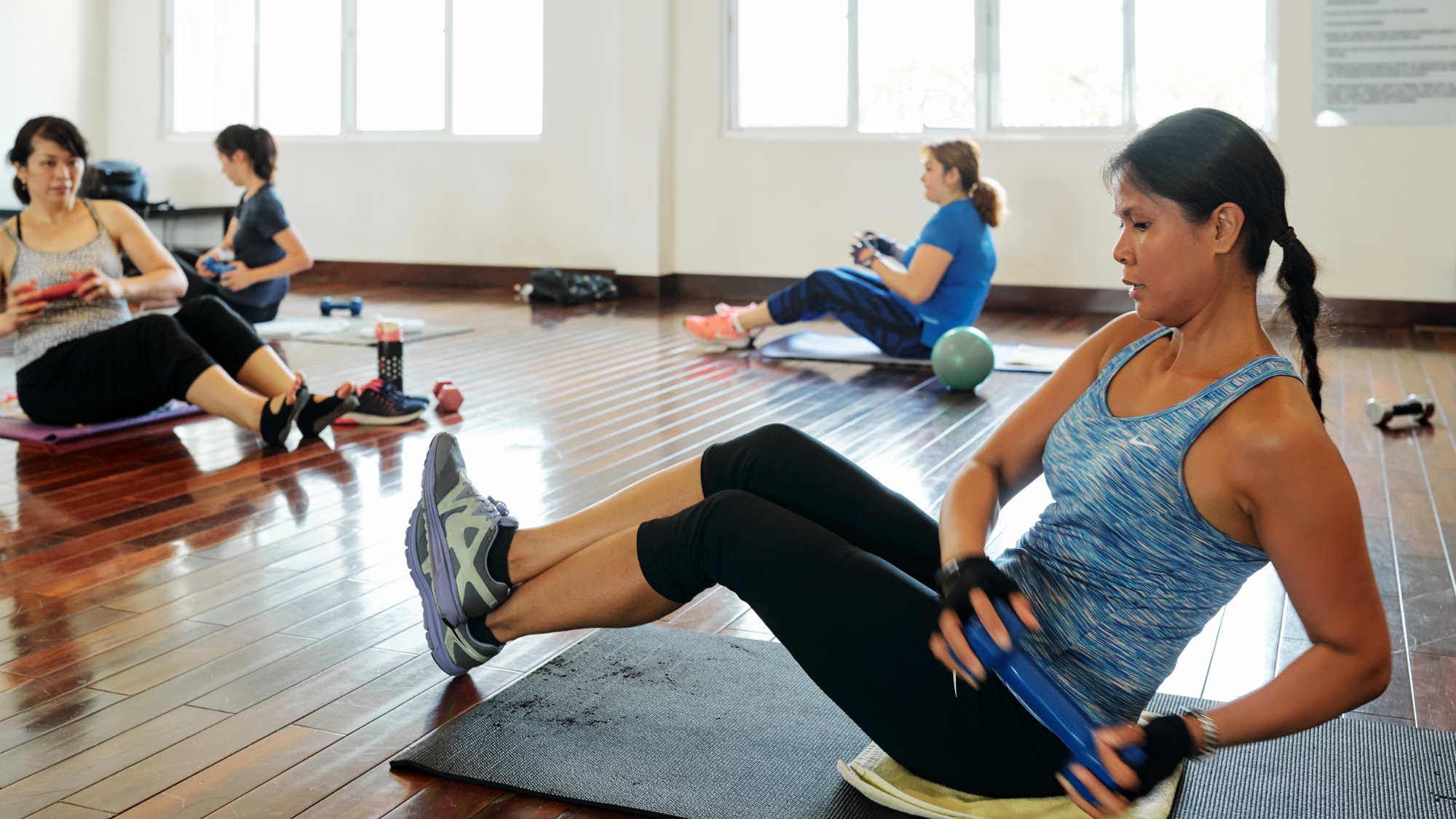
Your core plays a vital role in your body, from making movements like squats, deadlifts, or upper-body workouts easier, to promoting circulation and boosting your balance, and helping prevent injury.
Plus, using core strengthening exercises can improve your posture and stop you placing unnecessary pressure on your lower-back, making it an ideal way to train for those of us who spend much of the day at our desks.
But instead of spending hours on sit-ups and crunches, try this eight-minute weighted core workout to challenge your muscles, developed by calisthenics and gymnastics coach Sophie Brace.
You only need a yoga mat for comfort and a single dumbbell to get started, though we'd recommend investing in a set of the best adjustable dumbbells if you regularly train at home, as they're easy to store and can adapt as you get stronger.
There are two options for each exercise in this routine; one for beginners and one for people who are more experienced with core workouts. Start with the beginners routine, and as you get stronger, you can switch to the advanced level.
Watch Sophie Brace's eight-minute weighted core workout
There are four moves in this workout and Brace recommends using an interval format, moving for 40 seconds followed by 20 seconds of rest. Or, if this is too challenging, opt for 30 seconds of movement followed by 30 seconds of rest.
Go through each exercise like this twice for an eight-minute workout. If you can, avoid resting between each exercise in order to burn out your core muscles and aim to complete as many reps as possible during this time.
However, avoid rushing through each exercise. Instead, move intentionally and make sure you hit full extension at each end of the move, squeezing your abdominal muscles as you move to make sure your core is engaged.
This is a great workout to add into your routine regularly, as you can follow the principles of progressive overload by increasing the weight of the dumbbell as the workout becomes easier. This will help you build muscle and get stronger.
When strength training, make sure you're eating enough protein to build muscle as well as prioritizing recovery to reduce the effects of delayed-onset muscles soreness (DOMS) in the days after your workout.







